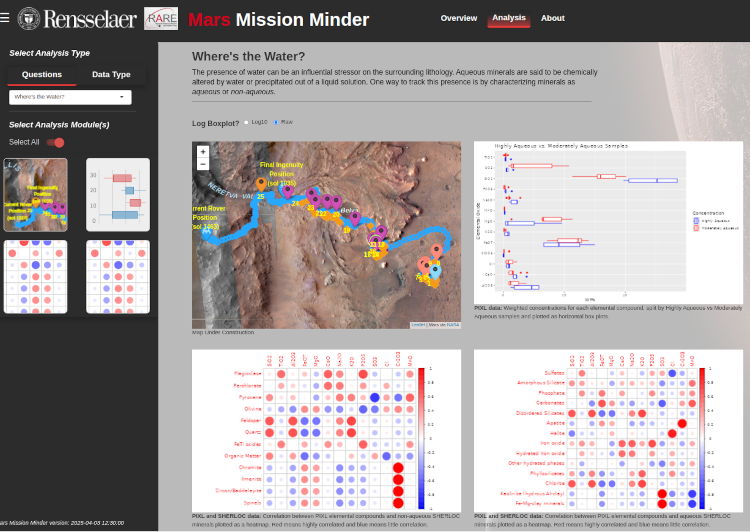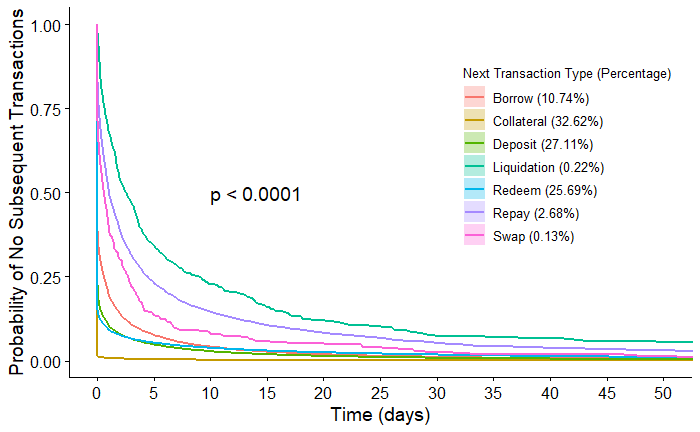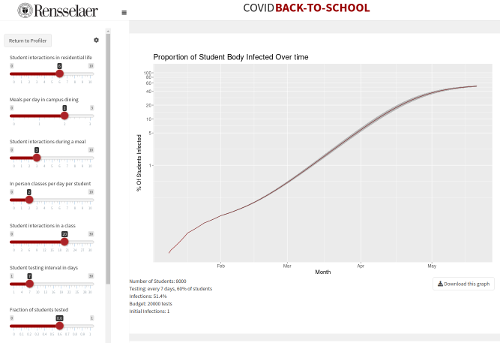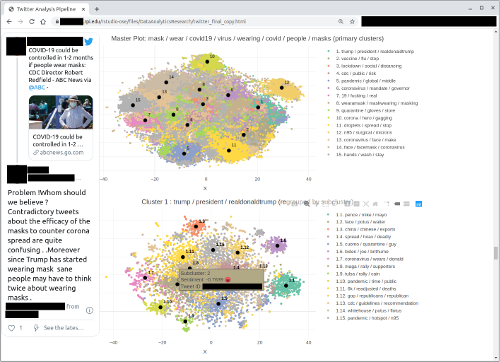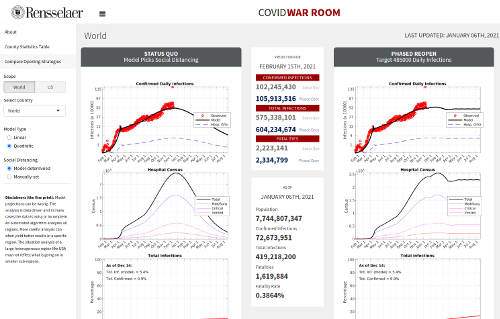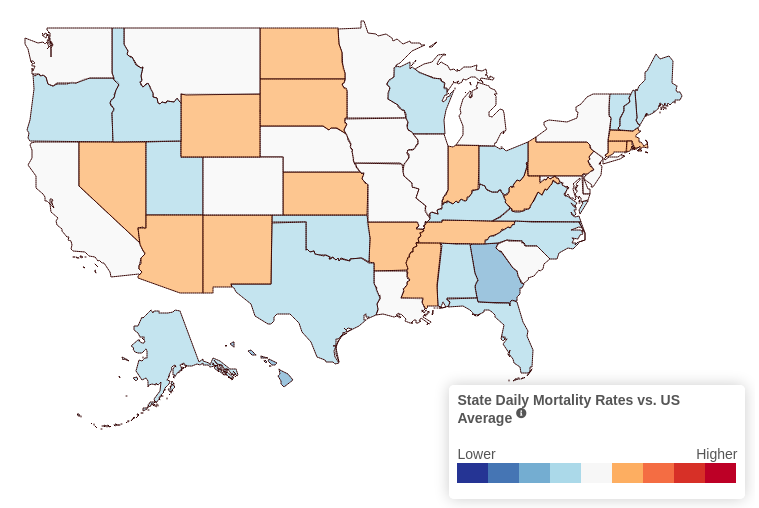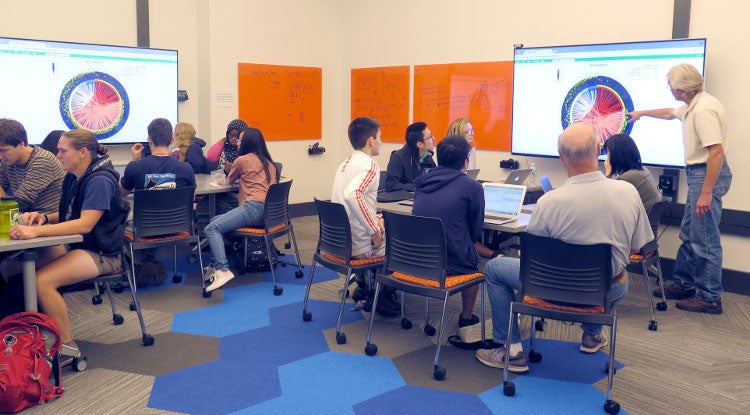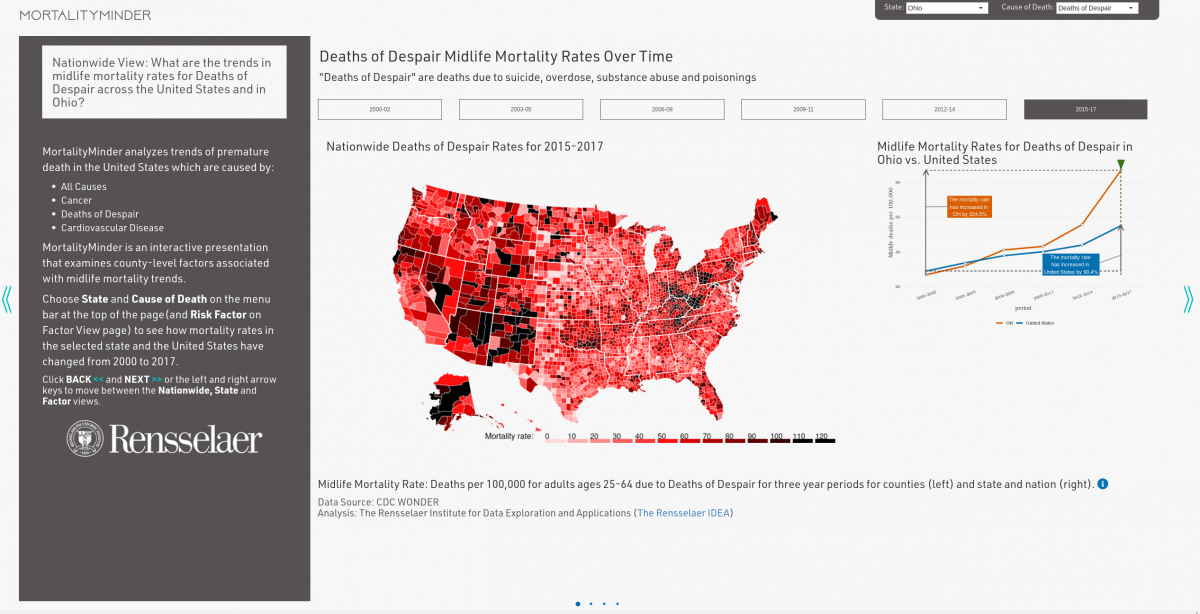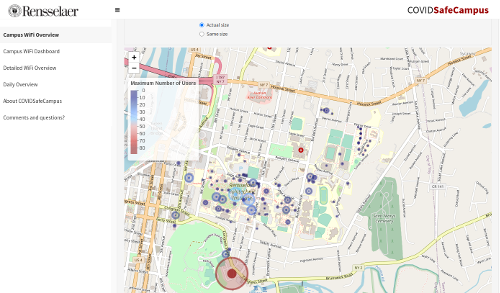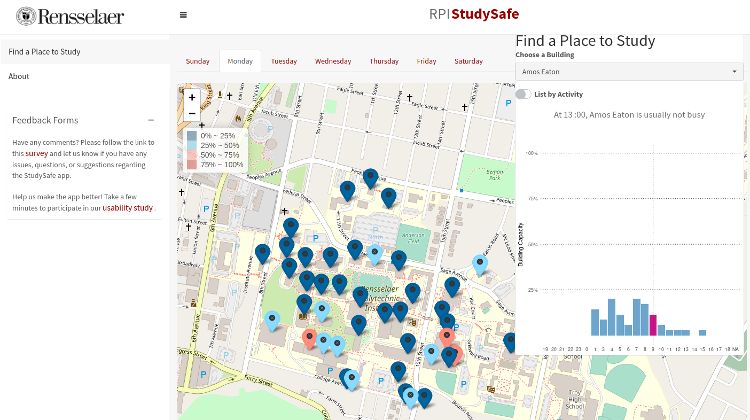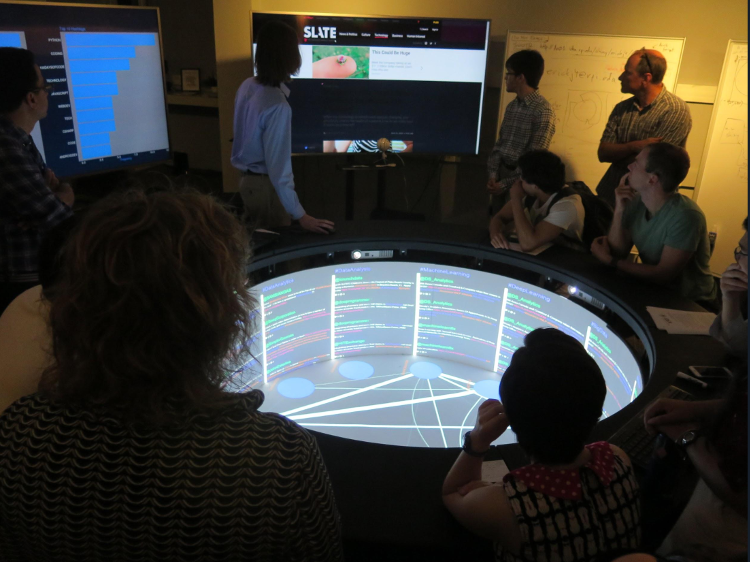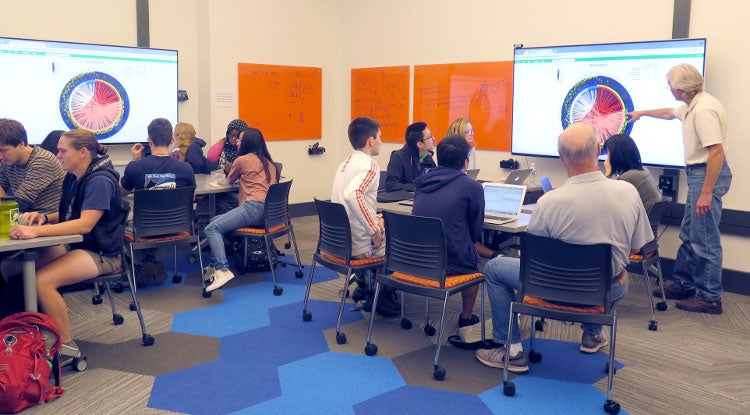
The Rensselaer Data Informatics Challenges in Technology Education (INCITE) Pipeline recruits and prepares students at Rensselaer and worldwide to be data scientists using early data analytics courses and experiential research projects centered on real-world problems.
Rensselaer's Data INCITE pipeline for undergraduate data science education consists of an early data analytics course followed by applied data science research experiences on real-world problems. Data INCITE results in data science skills and prompts students to pursue further coursework and careers in data science.
From 2018-2023 the Data INCITE lab focused on health informatics, during which time it became the Rensselaer Health INCITE Pipeline:
- Produced students skilled in health informatics.
- Created novel, low-barrier pathways into health informatics for students from a wide array of majors, including pre-med, biology, biomedical engineering, computer science, and mathematics.
- Enabled health informatics education at many institutions by creating shared health informatics instructional project resources, including publicly-available, web-based, open source data analytics applications.
- Recruited students to pursue health informatics careers.
The Rensselaer Health INCITE Pipeline was generously funded by the United Health Foundation
Publications about Data INCITE:
- Bennett, Kristin P.; Erickson, John S.; Svirsky, Amy; and Seddon, Josephine C. (2022) "A Mathematics Pipeline to Student Success in Data Analytics through Course-Based Undergraduate Research," The Mathematics Enthusiast: Vol. 19 : No. 3 , Article 5. DOI: https://doi.org/10.54870/1551-3440.1573
Check out the Project Gallery (BELOW) to see research products (interactive apps, papers, and presentations) created by students in the Data INCITE Lab.
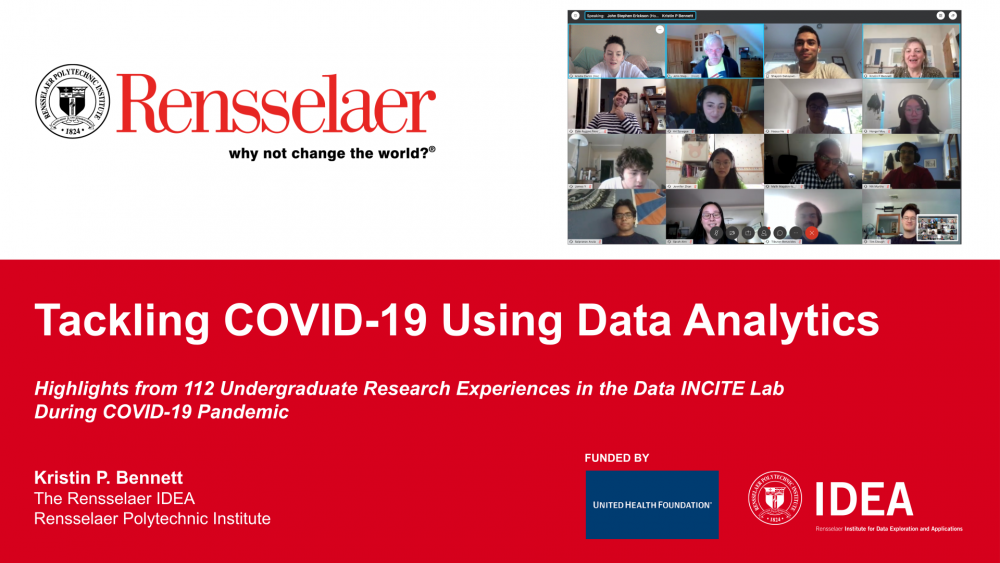 Summary Video: Tackling COVID-19 Using Data Analytics (NOV 2020)
Summary Video: Tackling COVID-19 Using Data Analytics (NOV 2020)
Highlights from 112 Undergraduate Research Experiences in the Rensselaer Data INCITE Lab During COVID-19 Pandemic (Kristin P. Bennett)

